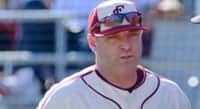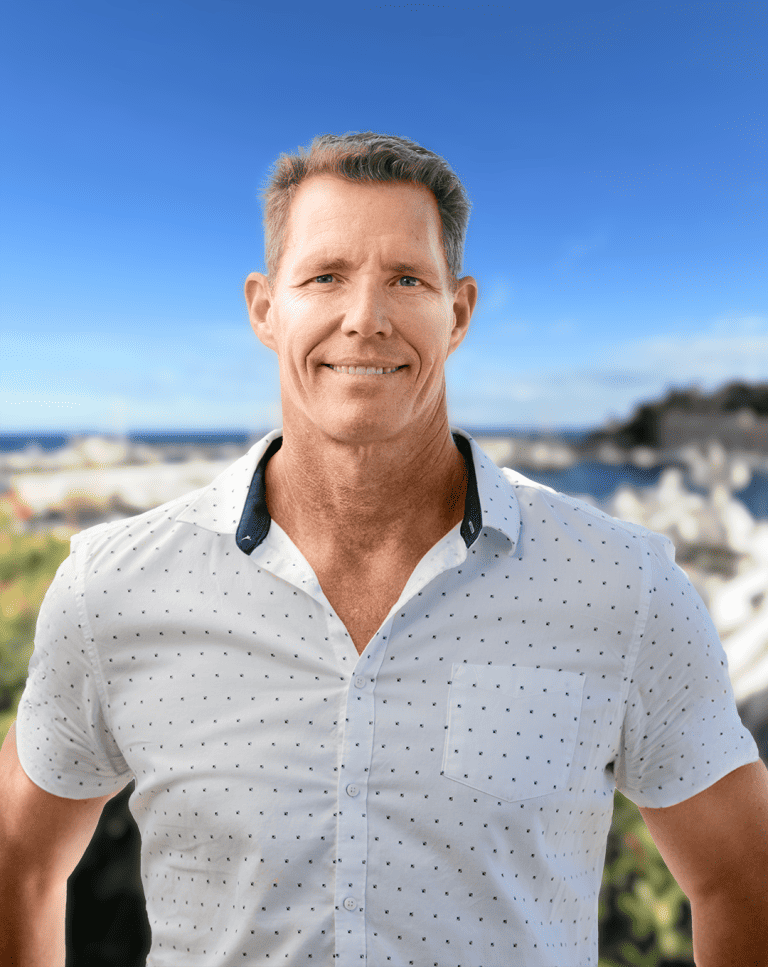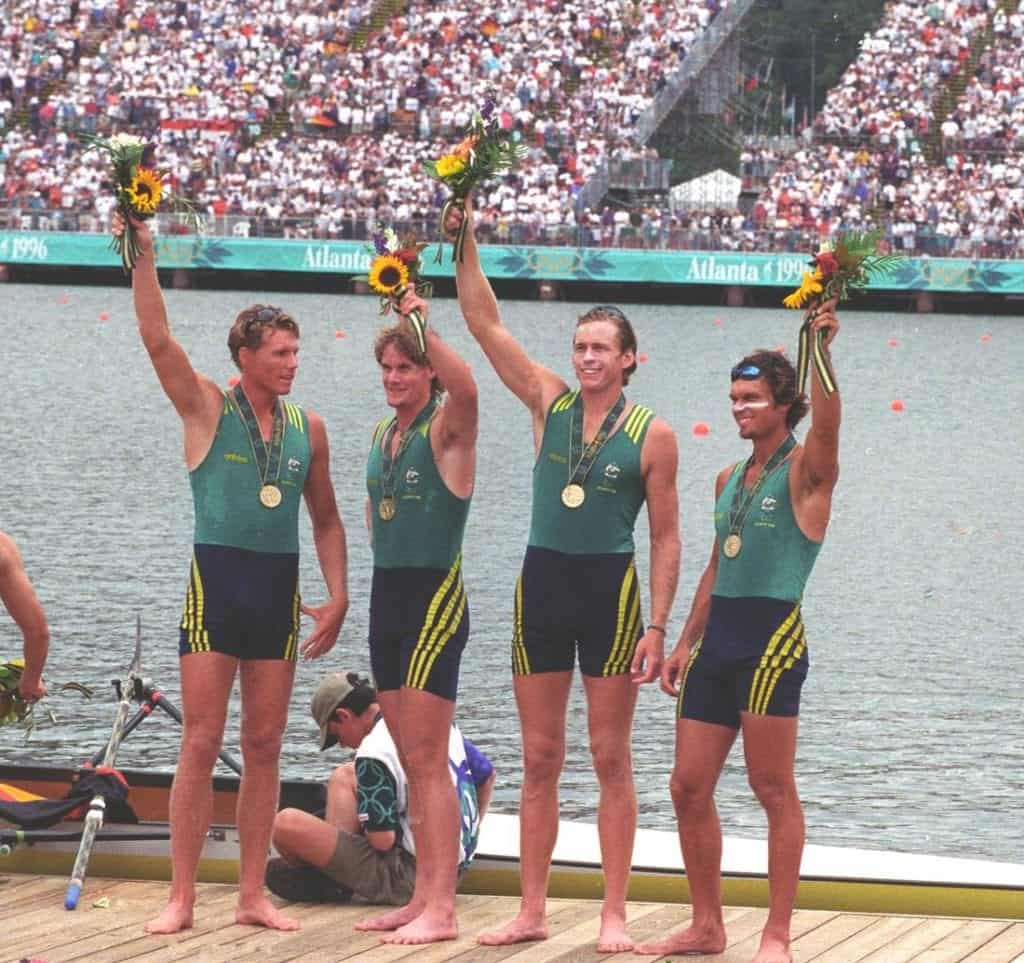Case Study:
Using DISC with Santa Clara Baseball
Bo Hanson was recently interviewed by EYE BRONCO, (Santa Clara University Broncos Athletics). The following video is a great example of the advantages of using DISC with your team.
Transcript of the Interview
MICHELLE
Hi I’m Michelle Schmidt with Eye Bronco. I’m here today with Bo Hanson four-time Olympian and Bronco Baseball Coach Dan O’Brien, welcome you guys. Today we’re going to talk to each these coaches about coach and athlete assessments. Bo came and spoke with our coaches this morning, and did a fantastic job talking about team dynamics. The first question I’d like to ask you Bo is how did you get involved in Athlete Assessments and talk a little bit about your background?
BO
Sure, so Athlete Assessments is a company that we created about seven years ago and it was really as a result of trying to understand myself better as an athlete. Having rowed at four Olympics, it wasn’t really until I got to the end of my career that I started to realize that my personality, my behavioral preferences and how he interacted with others actually had a big impact on the results that I achieved.
And so at the time I was doing a lot of work in the corporate world, and there was an assessment that we used called a DISC Profile. It helped leaders to better understand their leadership style and how to work with their people, and I was exposed to that profile at that time. I thought “why hasn’t someone told me about this in sport?” So I looked around for an assessment that would give me that understanding in sport, there wasn’t one. So we ended up creating an online version of it a number of years later, thinking that if this was something that I got benefit out of as an athlete, then surely there’d be a lot of other athletes that could benefit too.
MICHELLE
Terrific. Dan, if you can talk a little bit about Bo’s presentation and your own experiences. He talked this morning about some of the values of the team, can you talk a bit about the values for your own team that maybe you’ve worked on since you’ve been working with Bo, and as you’ve been a coach as well?
DAN
Sure, I well first of all I met Bo at one of these presentations at the school I worked at before. It was our women’s rowing coach who had invited Bo, like we invited Bo to come and talk to our staff here. The presentation spoke to me, we’ve always been fascinated with, and I mean it’s not our concept, clearly, but the concept of turning over every stone to be successful. I’ve been very fascinated with this new generation of student-athletes that we’re coaching vs. the generation of the coaches that were coaching me as I came up. You know you simply would not be able to do some of the things they did then to the athletes today.
So it was it was an opportunity for me to learn more about my behaviors and how I was coaching and then of course have Bo come with our team and talk about their behaviors using DISC. Team culture is everything to us, I believe that when we win championships we are going to do so because of our cohesiveness and our ability to work together as a unit, not because we worked harder in batting practice or we were really good as a coaching staff with strategy, but more because we focused on the human relationships in our program. So that’s the impact that Bo has had with his company in the teams that I’ve coached, and it’s just made a tremendous difference for us.
MICHELLE
Bo as a four-time Olympian you’ll get instant credibility with our baseball team I’m sure. What are a couple of the messages that you’re going to have for them today when you speak to them?
BO
The key message that we always have in a team sport is that it’s always more productive for the team to focus on being the best player for the team, and not just be concerned about being the best player on the team. So the key message that we talk about in that context is that everyone needs to make small adaptations to some degree in order to build an effective relationship with another player.
Where certain sports differ is that if you are talking about a basketball team, the relationships within the whole team have to be perfectly cohesive, because every player interacts to that degree together, they need to have that level of understanding. In other sports like baseball there will be critical relationships within the wider team relationship. So that will be some of the key things that we will chat about today.
But we’ve had conversations with the players before by Skype, and with the coaches as well. The process we normally go through is that we profile an entire team and then over the process of time have conversations with them via the Skype link up. So this won’t be the first time they’ve seen me actually, but it will be the first time face to face today.
MICHELLE
Terrific. So Dan, talk a little bit about why coach and athlete assessments are important for your team especially moving forward into the season?
DAN
Well I grew up idolizing coaches like Vince Lombardi, and Vince Lombardi was known to be an amazing coach, but very dominant to his team’s and how he communicated: “this is what you’re going to do because I said so”. Any research you do with this generation that we’re coaching now, it’s simply not a model that works. So as a coaching staff we wanted to find out how better to communicate with our athletes and how to get them to perform better, and that again is why it’s so important for us to get to know our players.
More than ever we want to have the best relationship possible with our student-athletes and we want to narrow the gap between, you know, the coaches are up here and the players are down here and the players are going to do what we say. So, together as a group of players and coaches we’re going to figure out the best way for us to be successful. It’s incredibly rewarding, and on top of us performing better as a team we just have a lot more fun together, we understand each other, we accept each other for who we are and we know that we all have strengths and we all have things we need to work on and this helps you recognize that while you might not agree with somebody, you know, you now look at that person for their strengths rather than just look at them for the things that they do that that you don’t like.
So you know one of the things that I’ve said a lot, and I started saying this right around the time we started working with Bo and his company, is that I really cared about winning games, and I changed my focus from winning games to really caring about our student-athletes. And ironically as soon as I started caring more about our student-athletes we started winning more games we started being more successful. So you know that’s the ultimate testament to the job Bo does with his company, with his athletes, and we just feel like we’re doing something very rewarding as well as being more successful, so it’s a lot of fun.
MICHELLE
Great, that’s really good to hear. I mean that’s really interesting to hear how you’ve adapted maybe a former model to a current model. With that said one of the things that you talked about this morning, Bo, was that you’re coaching people not necessarily athletes, so talk about that in respect to the current student athlete in college right now, you could talk about the NCAA athlete or maybe an Australian student-athlete and how different it is and how rewarding it is to coach that person and not just the athlete?
BO
Yeah I think it’s a good question. I think you know even based on what Dan was chatting about before, I think the reality is that Dan has always done a good job on this side of things. It’s been interesting that with our business, you know, when we first started we always thought that the type of coach that we’d appeal to, would be a young coach that was starting out and looking for some sort of advantage anyway they could get it. But really it’s been quite the opposite. Typically the type of coach we work with is a very experienced coach has been enormously successful already, and that’s one of the things that’s made them successful already was the fact that they’re always looking to improve, even in this area.
So Dan has always been a great model for us in terms of how you should do it well. And so whilst he may have had a bit of a focus on winning, and I mean that’s important, the reality is that when I myself was an athlete that was my primary focus when I was rowing and you know winning is fun right? I mean everyone enjoys winning. It’s just that the reality for a lot of athletes while [winning] might be enjoyable for them, it may not be their primary focus. Most people don’t turn up to, you know, defeat the opposition, but perhaps by executing the plan, by training hard, by you know being an effective team members for each other that’s the outcome that they achieve.
So it’s interesting to get in touch with the different motives that people have, and that’s really the crux of what DISC is all about, it’s about understanding your athletes better. One of the things I mentioned during the presentation was that fact today we have a generation of athletes, not just in your country in America, but also in Australia, New Zealand, in the UK, it’s a generation which has grown up having the expectation that everything is going to be tailored to suit their specific needs. When they look at the coaching and they look at an environment which perhaps is not tailored to suit their specific needs, that it can be a little disengaging.
So they also want to have involvement with what they’re doing and they want to have ownership, and these are really great qualities, and they can make the program better for everyone really. So that that’s a big part of the message that we’re trying to get across, is that, you know, this generation might be a little bit different but a lot of those differences are really positive, and it can make the sport better. We’ve already seen this with some other programs that we work with, through the exposure of DISC and understanding themselves better, it has in fact prepared them for a life outside of sport, and that’s really what university is about.
We’ve had student athletes that have done the profiling, gone for their first job interview and their prospective employer has said to them, “look we’d like you to take a DISC Profile”, and they’ve said “I’m happy to take one, in fact I can tell you what my profile is already. These are my strengths and these are the things I’m working on, and this is what I need to get better at”, and they’ve ended up getting the job. So when we hear stories like that for us it confirms a lot of the reasons why we’re participating in this business in the first place. We really believe that our role is to help educate coaches and athletes so they can have a really positive experience in sport, you know, and that’s being driven out of the life that I had in sport, I had coaches that genuinely were concerned and they cared about me as an individual. And when you feel valued you generally behave in a way which adds value to others in the program, and that’s one of the key messages.
MICHELLE
My final question will be, this morning in the room besides Coach O’Brien who has been a National Coach of the year, you had Jerry Smith in there who has lead the Women’s Soccer team to a national championship, and John Wallace who lead our volleyball team to a final four, and Brandi Chastain also in there who works with our women’s soccer team, we could go on and on about the Olympics medal she has and the World Cup success she’s had. When you’re talking to people like that that have coached at such a high level, is there a specific thing you want to walk away with or do you think that there is a specific thing that you see them walk away with?
BO
Yeah it is interesting sometimes what I present, and what people walk away with are two different things. So there’s a lot of interpretation. Some people take away a different message as obviously someone else. Something I’d hope the key message is, is that any coach is not a finished product just like their student-athletes. If there was a little critique of the US College system I think that sometimes coaches recruit what they think are finished products. So they are just expecting that these talented athletic are going to turn up and perform for them and get the job done. And what I’d really like to see is just a little bit more individualized attention and also a little bit more of an individualized coaching focus.
So that, you know, as good as they might be now, one of the great things about your university programs over here is that you do attract literally a global base of talented players, and that the role at the coaches is just to add even a little bit more value there. So there’s very few things from athletes point of view, and this is something that I learned from my coach I had for three Olympic Games Tim McLaren, what he taught me about this was that, I mean he was an Olympic gold medal coach he’s now a seven-time Olympic coach, he’s coached Olympic medals every single time.
So this is a coach who knows exactly how to get the best out of an individual, but he always kept developing himself and whether that was through an external course, or he was always reading, the hours that he would spend when I was an athlete, he would be leaving the club at nine or ten o’clock at night, arriving at five am in the morning and managed to keep his relationship with his wife and family together at the same time which is pretty amazing. But when I saw him doing that I knew for a fact that he’s in there trying to make us faster, and he’s trying to improve himself. So when you set that example, and when a coach goes on a development program, that’s what you’re asking the players to do, you know, to be a little bit better and so if you role model that it just creates more compelling message for them.
MICHELLE
You guys have been terrific I really appreciate it. All you Bronco fans out there go and check Bo’s website Athlete Assessments and also go on the Santa Clara website, and also Baseball’s website Relentless Development, you’ll find a lot of things that are both these guys are working on that are terrific. So thanks you guys we appreciate you being here today.
We hope you enjoyed Bo’s interview with Dan O’Brien – Santa Clara Baseball Coach. At Athlete Assessments, we’re here to provide you with excellence in service and here to help you be your best. If there is anything we can assist you with, please Contact Us.




